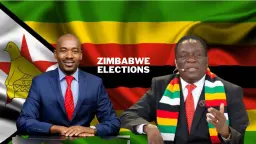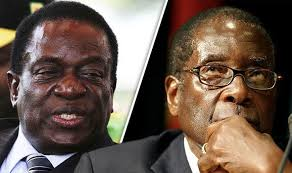Gwinyai Taruvinga, a post-doctoral fellow at the Wits Humanities Graduate Centre, has emphasised the importance of regional bodies like SADC in resolving the political deadlock between President Emmerson Mnangagwa and opposition leader Nelson Chamisa after Zimbabwe’s August 2023 elections.
The election highlighted weaknesses in the Zimbabwe Electoral Commission (ZEC) and other electoral oversight institutions, with challenges such as delayed ballot delivery in opposition strongholds. SADC’s Electoral Observation Mission report, acknowledging voting delays, banned rallies, and biased media coverage, was met with criticism from the ruling party ZANU PF.
Taruvinga says Zimbabwean elections have had a regional impact, with citizens migrating to neighbouring countries due to economic challenges hence the need for SADC to play a leading role in resolving the ongoing crisis in Zimbabwe. SADC’s previous actions, like brokering a power-sharing deal in the 2008 election, raised concerns about their impartiality in favour of ZANU PF. We present an excerpt from Taruvinga’s article first published by IOL:
Zimbabwe, despite holding regular elections, has continued to find itself in an unending cycle of political crises dating back to 2000. Without dialogue overseen by a neutral actor, it is highly unlikely that southern Africa will find political stability. It is, therefore, important that regional bodies such as SADC play a leading role in resolving the political impasse between Mnangagwa and the opposition leader, Nelson Chamisa.
In 2008, Mbeki, albeit being viewed differently by multiple actors in Zimbabwe, played an important role in negotiating a settlement between Mugabe and Tsvangirai and a similar outcome is required in this regard.
Since 2000, Zimbabwe’s elections have been controversial, with the ruling ZANU PF accused of using state machinery to maintain power. In the run-up to the 2023 elections, authorities banned the opposition party CCC rallies and arrested some of its activists, raising doubts about the electoral environment. ZANU PF strategically targeted urban voters, leading to the disenfranchisement of opposition strongholds.
Source Pindula News










